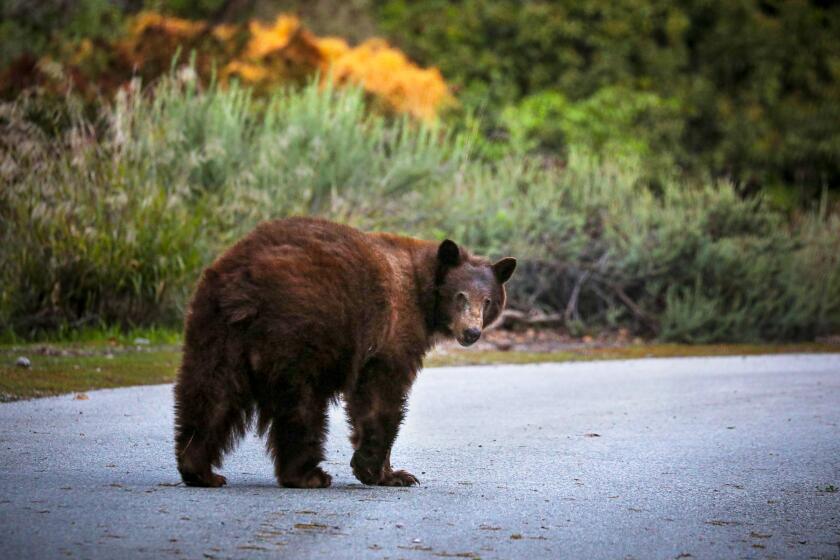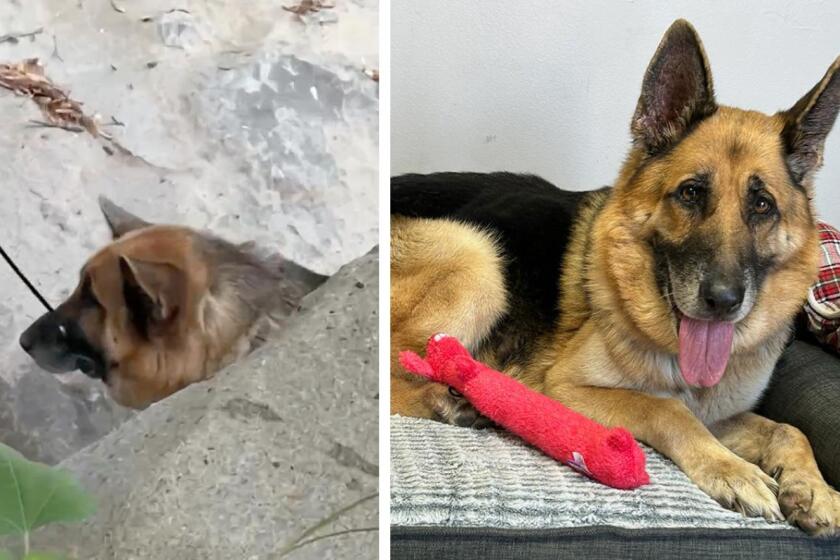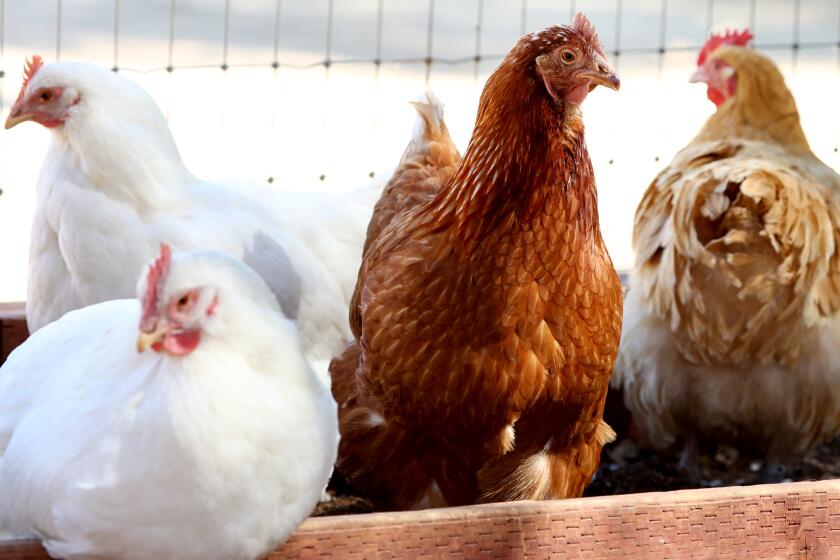Groups Draft Worldwide Plan to Protect Dolphins : Environment: The five-point proposal is aimed at the international tuna-packing industry to make sure each step in the process is “dolphin safe.”
Greenpeace and the Dolphin Coalition, which have been agitating for an end to tuna-fishing practices that kill dolphins, have agreed on the draft of a five-point corporate policy that they want the international tuna-packing industry to adopt.
The policy would go beyond recent federal legislation that set U.S. standards for tuna that can be labeled “dolphin safe.”
“We’d like the tuna industry to move toward a higher ground,” said Traci R. Romine of Greenpeace, “to make sure that all the links in the corporate chain have to be dolphin safe.”
A canner’s claim to be selling only dolphin-safe tuna, in the coalition’s resolution, “must be binding worldwide, including all subsidiaries, controlled bodies . . . enterprises which purchase, process or sell canned tuna, or tuna products for export.” Fishing practices to be banned would also be expanded to include tuna caught in smaller coastal gill nets, a practice currently allowed under U.S. and United Nations regulations. And corporations would be required to allow “unrestricted access” to all company information about its tuna-buying practices.
Already widely accepted, but restated in the resolution, is a ban on tuna caught using purse-seine nets or high-seas drift nets.
Environmentalists have lately focused criticism on the international operations of big tuna companies.
“The Italian canneries are buying up this cheap yellow fin tuna set on dolphins,” said Brenda Killian of San Francisco-based Earth Island Institute, a coalition member. Environmentalists have also questioned the practices of subsidiaries of Mitsui & Co., Mitsubishi Corp. and, particularly Bumble Bee Seafoods Inc., the San Diego affiliate of Unicord Co., a Thai company. Bumble Bee and Earth Island have quietly begun peace talks after recently attacking each other in full-page newspaper ads, however.
Environmental groups have so far been satisfied with the performance of StarKist Seafoods Co., a subsidiary of H. J. Heinz Co., and Van Camp Seafood Co., which markets Chicken of the Sea brand tuna. Bumble Bee executives said they meet the new standards, too.
More to Read
Sign up for Essential California
The most important California stories and recommendations in your inbox every morning.
You may occasionally receive promotional content from the Los Angeles Times.






